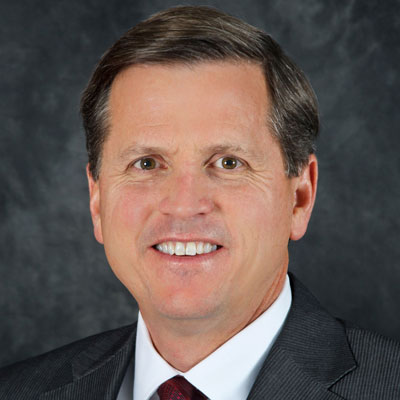Outlook 2023: Self-Care Policy, Cosmetics Regs, Supply Issues And Sustainability Are Top Priorities For Trade Associations
Executive Summary
Leading trade groups are working with members to address OTC drug product shortages and other supply issues, advocating for policies that usher self-care forward post-pandemic, tackling new cosmetics regulations, and doing their part for the health of the planet and society.
HBW Insight asked leading trade associations for insight into their expectations, priorities and programming for 2023. Here’s how the Consumer Healthcare Products Association, Global Self-Care Federation, Natural Products Association, Cosmetics Europe and others responded to our prompt.
"2023 will be the year of..."

Scott Melville
President & CEO, Consumer Healthcare Products Association
...demand, production, and innovation.
While the core historic growth drivers of self-care – cost, convenience, and trust – remain very much in force, there are new and increasing factors enhancing demand for consumer healthcare products now and for the foreseeable future. This includes this winter’s unprecedented “tripledemic” of respiratory illnesses (influenza, RSV and COVID-19) that is leading to significantly higher demand for fever reducing, cough-cold, and immune support products, as well as consumer medical devices to monitor and diagnose personal health conditions.
And with this heightened consumer demand – which recently triggered a 65% increase in sales for some of these products compared to the same time the previous year – comes increased pressure on industry to maintain and enhance production. Identifying ways to safeguard global supply chain resilience is a priority, both for our industry and for policy makers who want to ensure adequate supply of essential medicines during challenging times. Which is why production will continue to be a major focus for CHPA and its member companies in 2023.
Finally, the year ahead is certain to be one of innovation for consumer healthcare. The regulatory environment for self-care is evolving as the new authorities for OTC monograph, enacted in the 2020 OMUFA law, are used both by industry to propose innovations and by FDA to finalize safety labeling changes for several ingredients. We also expect more activity in 2023 around Rx-OTC-switch, as we strongly encourage FDA to finalize the Additional Conditions for Nonprescription Use (ACNU) rule. Additionally, as first-in-class switches are reviewed by the FDA – like the recently announced applications for Narcan and OTC birth control— we’re hopeful this will lead to more OTC options for consumers.
CHPA continues to press for more regulatory clarity in dietary supplements and is pleased FDA has indicated new guidance for CBD products is forthcoming in 2023. Finally, we see continued innovation and expansion upon traditional self-care products and a greater push into digital healthcare. This was evidenced by CHPA’s first-ever official presence at the annual CES conference this month in Las Vegas. We believe the future of self-care includes a combination of OTC drugs, dietary supplements, and digital healthcare, and CHPA will continue working each day to shape that vision.
Read more about CHPA’s work with industry to support surging demand for pain relief and cough/cold products this winter and its ongoing advocacy efforts around the FDA's ACNU proposed rule.

Judy Stenmark
Director General, Global Self-Care Federation
Be it global recessions, conflict-provoked economic downturns or climate driving anomalies, what’s clear is that 2023 will be a year of disruption. Which, paradoxically, means there will be numerous opportunities to rethink our health systems.
For the consumer healthcare sector, the three key themes of 2023 will be: holistic focus on sustainability, economic downturn, and the importance of universal health coverage (UHC).
As we continue to see the impacts of climate change, there will be greater call for ESG activities too. As an industry, we are committed to sustainability, and our member companies continue to drive evidence-based self-care products and solutions that ensure environmentally sustainable healthcare systems.
The COVID-19 pandemic forced the world to rethink the fundamentals of healthcare and it’s now clear that resilient health systems will need to leverage effective self-care policy.
2023 will be the year to build on a foundation of lessons learned, which is why we’re advocating for a WHO Self-Care Resolution that enshrines self-care into the international framework for UHC.
Read more on this initiative from GSCF's World Congress 2022 in October.

Jurate Švarcaite
Director General, Association of the European Self-Care Industry
...important regulatory developments in Europe.
As we continue to implement the Medical Device Regulation, we expect publication of the proposed revision of the European Pharmaceutical Law by Q1. This proposal is an opportunity to modernize the regulatory requirements for the authorization of medicines, and it will be our job at AESGP to ensure that the proposed changes reflect scientific and societal progress and improve access to non-prescription medicines in the EU.
We will also see several proposals for environmental sustainability that will likely affect all products represented by AESGP, including the revision of the founding regulation of the European Chemicals Agency and the already published directive on packaging waste. It will be important to take a holistic approach to the sustainable lifecycle management of self-care products, and the ingredients and materials used in them, that does not compromise access.
Read about sustainability issues addressed at AESGP's 2022 annual meeting.

Daniel Fabricant
President & CEO, Natural Products Association
For NPA, 2023 is a year of continuing to advocate for consumers to have more and equal access to products that will improve their health while ensuring the industry has clear and fair rules to develop the next generation of dietary supplements for consumers. Federal lawmakers have signaled their intention to continue an in-depth analysis of the FDA’s current authorities to determine if they are effectively using them. At the state level, despite significant victories in New York and California, lawmakers are already working to reintroduce their proposals that restrict and limit access to dietary supplements. NPA remains hyper-focused, ensuring the FDA appropriately applies the law and consumers continue to have access to safe, effective, and well-research dietary supplements.
Read Fabricant's views on global supply chain challenges in 2023.

Michael McGuffin
President, American Herbal Products Association
For the US consumer health products industry, including herbal supplements, 2023 will be the year of greens. Consumers have increasingly embraced plant-based foods and dietary supplements for both their personal health and for the health of the planet.
Read about AHPA’s stance on proposed legislation for mandatory product listing of dietary supplements with the US FDA.

Hubertus Cranz
Director General, German Medicines Manufacturers´ Association (BAH)
...creating a more stable business environment.
If executed in an appropriate manner the revision of the European Union medical device regulation and of the EU general pharma legislation will in the medium term overcome many uncertainties for manufacturers of medicines and medical devices. This is urgently needed in light of numerous challenges around the supply chain and will hopefully not be undermined by new administrative requirements. It will allow the industry to carry out the tremendous efforts needed for digital and green transformations. Recognition of the value of a stable health industry will hopefully increase.
Read an interview with BAH's Cranz and Healthcare division head Lutz Boden in which they discuss the new EU Medical Devices Regulation and the impact of the coronavirus on the Germany’s OTC industry.

Michelle Riddalls
CEO, PAGB, the UK consumer healthcare association
...collaboration and cooperation.
PAGB, the consumer healthcare association, will seek to build closer ties with the MHRA and the Department of Health and Social Care to ensure a healthy regulatory environment for over-the-counter medicines.
We will provide our expert voice in relation to the Northern Ireland Protocol and its impact on medicines, medical devices and food supplements and are hopeful that a negotiated solution can be reached.
Self-care remains a priority for PAGB, and our Self-Care Strategy Group will continue to provide a means for collaboration and cooperation to drive forward the message that self-care can help reduce pressure on the NHS and empowers people to take control of their health.
Read more on PAGB’s work to shore up consumer confidence in self care.

Dimitris Moraitis
President, Greek Association of Self-care Industry & General Manager VIAN S.A.
In 2023, high inflation, energy crisis, uncertainty and low consumer and business confidence will recover towards the end of the year when energy prices and supply bottlenecks are resolved.
Also, in 2023 the pursuit of human characteristics such as resilience, adaptation and agility will drive all facets of the population’s activity.
In this challenging environment, despite the projected weakening in the beginning of 2023, the economy is expected to rebound, which will find most people and especially new generations with different priorities and technological tools.
The self-care industry must identify and embrace these priorities of the new consumer, the new employee, and the new shareholder.
The correlation of sustainability, hybrid working and CSR to the environment, productivity, and profit, will be a key issue regarding micro and macro management; but it will be up to the leaders to provide the guidelines and directions which will lead to the safe transformation in the organizations.
Listen to more on related trends on HBW Insight’s “Over the Counter” podcast.

Luc Besançon
Délégué Général, NèreS
...continued increased sales of OTC products with a focus on prevention.
We have seen for several years an increase in the market share of pharmacies vs other channels (with the exception of online). Our analysis is that a portion of the consumers are moving from some channels to community pharmacies. This is a trend facilitated by an increase in terms of foot traffic in community pharmacies, supported by new services and the return of cold/minor ailments. However, some changes pushed by pharmacists (possibility to renew an expired prescription and/or dispense a Rx medicine without a prescription) may have a negative impact if implemented.
Read about barriers to self-care growth in France and forces that could open the market going forward.

Lezlee Westine
President & CEO, Personal Care Products Council
...continued momentum for the cosmetics and personal care products industry as PCPC and our member companies remain steadfast in our commitment to the wellbeing of our employees, our consumers and our communities.
We are very proud that our advocacy efforts resulted in Congress passing long-awaited legislation to modernize federal cosmetics regulatory oversight. After more than a decade in the making, our industry remains deeply committed to public policy based on the best available science. We will continue to work with Congress and key stakeholders to build on this important work to advance product safety and innovation and reinforce consumer confidence.
We also will continue to advocate globally on trade and regulatory initiatives, including environmental sustainability initiatives such as the European Union Green Deal. It is critical that we rely on rigorous science in our efforts to provide consumers with access to the products they trust and use every day.
We believe protecting people and the planet is an urgent responsibility. Our industry will continue to integrate sustainable practices into business operations, advance programs to improve employee recruitment and retention, and address racial disparities in leadership and pay.
Our industry’s products enhance wellbeing and quality of life. 2023 will see our continued commitment to a more beautiful and sustainable world.
Read about the game-changing Modernization of Cosmetic Regulations Act that will keep PCPC and its members busy.

Don Frey
President & CEO, Independent Beauty Association
...collaboration.
The Independent Beauty Association is excited about working closely with our 600 member organizations to best represent the voices of small business over the coming year as implementation of the Modernization of Cosmetics Regulation Act is developed and the FTC’s Green Guides are updated. IBA’s membership supports a diverse assortment of small businesses founded by U.S. entrepreneurs, innovators, manufacturers, scientists, and artists. We are committed to promoting the innovation from entrepreneurs that has continued to make the Beauty industry an engine of growth for the US economy.
FDA’s upcoming rulemaking work provides a once-in-a-generation opportunity to efficiently and effectively modernize the US cosmetics regulatory landscape. The FTC Green Guides update represents the first large-scale revision to environmental claims guidance in ten years. IBA fully supports our federal agencies and looks forward to contributing to the conversations between agency leadership and industry stakeholders, which begin this month.
Read more about the FTC’s planned update of its Guides for the Use of Environmental Claims.

John Chave
Director-General, Cosmetics Europe
...intense activity on regulatory issues for the cosmetics and personal care industry in Europe.
With an array of ongoing legislative initiatives impacting our sector, staying agile in our positioning and speaking with one voice will be more crucial than ever. The revision of the Cosmetic Products Regulation and of REACH, the Urban Waste Water Treatment Directive, the Packaging and Packaging Waste Directive, and the Microplastics Restriction are only some examples of what is on the European agenda for the upcoming months with direct implications for our industry. Although we might not get all the answers in 2023 (the EU takes its time...) 2023 will be a year in which Cosmetics Europe engages more heavily than ever with policy makers and regulators to present our industry’s view and defend our interests.
But 2023 will not only be about legislation - Cosmetics Europe will also be working proactively to further extend our sustainability initiative ‘Commit for Our Planet’, and will launch a new pan-European initiative on communication with consumers on cosmetics ingredients.
We will not be bored...
Read about Cosmetics Europe’s concerns amidst rapid policy developments under the European Green Deal.

Farah K. Ahmed
President & CEO, Fragrance Creators Association
...responsible industry stewardship.
I believe this is the most important time in history for many industry associations, including ours. To solve big challenges and harness paradigm-shifting opportunities, associations serve as a platform for companies to come together – a whole of industry effort – to advance impacts in ways made possible by working together in a pre-competitive environment.
For decades, our member companies have committed to responsible practices that go above and beyond to deliver positive impacts: worker well-being, employee DEI&B growth and development, investments in sound science, good governance, community welfare, climate change, and other sustainability efforts. We’ve seen the good these can do on an individual company basis or through specialized non-profits but, as we face massive global challenges, accelerating speed of information and digital technology, and an increasingly complex regulatory landscape, it is essential that we advance responsible stewardship at a whole of industry level.
In 2022, Fragrance Creators announced our Responsible Industry Stewardship Program. In 2023, I am excited to collaborate with other stakeholders to grow its impacts. I see 2023 as a year of participating in good faith, and in partnership with players from across the value chain, to promote policies and programs and support implementation of regulations that advance sound science and innovation, build consumer confidence, and deliver more good for people, perfume, and the planet today and tomorrow.
Read more about Fragrance Creators’ work toward a sustainable future.
